Search
Remove Ads
Advertisement
Search Results
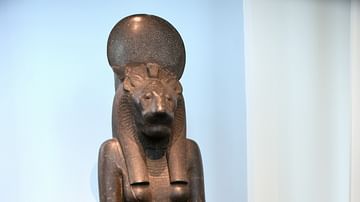
Image
Statue of a Sitting Figure of Goddess Sekhmet
Sekhmet was a lion goddess, whose name means "the mighty one", and she personified the aggressive aspects of other goddesses. Sekhmet was a daughter of the sun god Ra. She usually wears the sun-disc on her head. A famous myth recounts how...
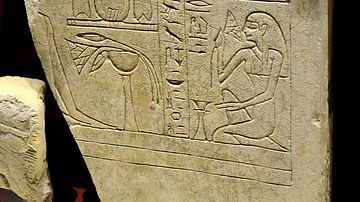
Image
Egyptian Stela Showing Women Sitting Before Offerings
This fragment of a stela shows two women before tablets of offerings. From Abydos, Late Middle Kingdom, circa 1750 BCE. (National Museum of Ireland-Archaeology, Dublin, Republic of Ireland)
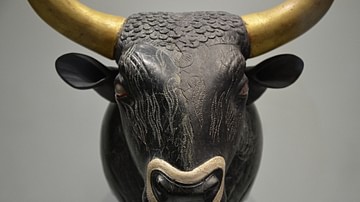
Image
Bull’s Head Rhyton from Knossos
Bull’s head rhyton from the palace at Knossos in Crete. The carving, from a single block of black steatite, is remarkable for it was worked with great precision to render the natural features of the real animal. The eyes are inlaid with rock...
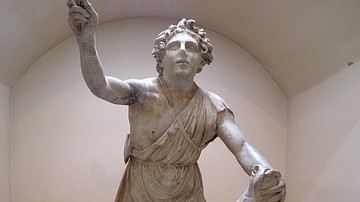
Definition
Mithraism
The Mithraic Mysteries, also known as Mithraism, were a mystery cult in the Roman world where followers worshipped the Indo-Iranian deity Mithras (Akkadian for "contract") as the god of friendship, contract and order. The cult first appeared...

Image
Minoan Bull Leaping
A fresco showing bull leaping, Minoan Knossos (Final Palatial period 1450-1400 BCE), Heraklion Archaeological Museum, Crete.
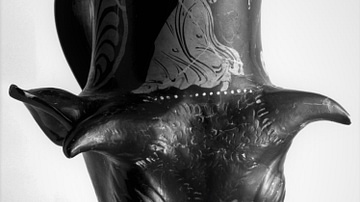
Image
Bull Head Rhyton with Dancer & Tympanon
Apulian red-figure drinking-vessel from c. 360 BCE, attributed to the Illupersis Painter of South Italy (active c. 375-350 BCE), The J. Paul Getty Collection, Malibu, no. 71.AE.196 Horn-shape drinking vessels are among the earliest finer...
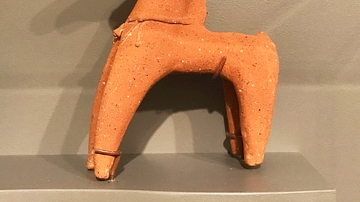
Image
Terracotta Bull from Cyprus
This terracotta bull comes from Cyprus and dates from c. 700-650 BCE. (Iris & B. Gerald Cantor Center for Visual Arts at Stanford University, Stanford, California)
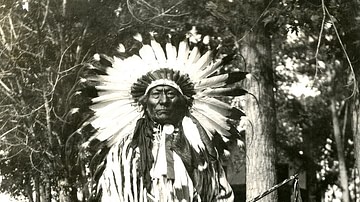
Image
White Bull
Hunkpapa Lakota Sioux warrior and chief White Bull (l. 1849-1947) in 1926 at the 50th anniversary of the Battle of the Little Bighorn. Photo by Earl Alonzo Brininstool.
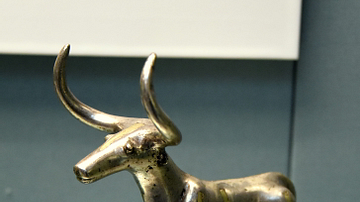
Image
Bronze Age Silver Bull, Turkey
The gold inlay can be seen on the shoulders, sides, and haunch. The animal stands on a copper stand. Perhaps, it was part of a canopy pole of a rich burial. Probably from Alaca Huyuk, Central Turkey. Early Bronze Age, about 2300 BCE. (The...
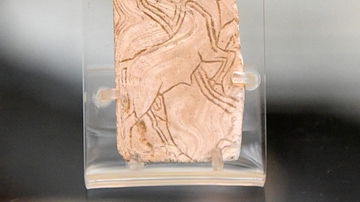
Image
Prancing Bull from Tell al-Ubaid
This plaque of Sumerian decoration was probably used for wooden items, such as furniture or fine musical instrument. From Tell al-Ubaid, Southern Mesopotamia, modern-day Iraq. Early Dynastic Period, 2600-2500 BCE. (The British Museum, London...